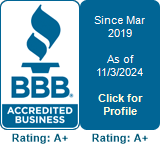A Surety bond is a contract among three parties: the obligee – the party who is the recipient of an obligation. The principal- the primary party who will perform the contractual obligation. The surety- who assures the obligee that the principal can perform the task
SURETY & FIDELITY BOND

There are four types of surety bonds:
- Bid Bond: Ensures the bidder on a contract will enter into the contract and furnish the required payment and performance bonds if awarded the contract.
- Payment Bond: Ensures suppliers and subcontractors are paid for work performed under the contract.
- Performance Bond: Ensures the contract will be completed in accordance with the terms and conditions of the contract.
- Ancillary Bond: Ensures requirements integral to the contract, but not directly performance related, are performed.
When is a surety bond necessary?
Any Federal construction contract valued at $150,000 or more requires a bond when bidding or as a condition of contract award. Private entities, service contracts and supply contracts may also require surety bonds.
Fidelity Bonds
There are three types of Fidelity Bonds:
- ERISA Bonds: Protection for businesses with a defined benefit plan
- Buisness Service Bonds: Protection for businesses whose employees enter clients homes
- Dishonesty Bonds: Blanket or scheduled coverage to protect businesses against employee misconduct.
When is a Fidelity bond necessary?
Your business may be required by law to have a fidelity bond if you have a defined benefit plan.
Any business with employees, contractors or those with a high turnover rate.


